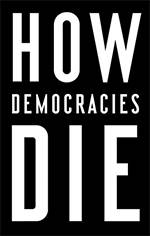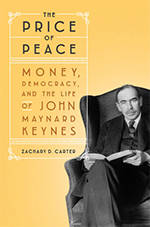OnPoint Subscriber Exclusive

Anatole Kaletsky
Says More…
This week in Say More, PS talks with Anatole Kaletsky, Chief Economist and Co-Chairman of Gavekal Dragonomics.
Project Syndicate: In 2017, you wrote, “Donald Trump’s presidency is a symptom of an interregnum between economic orders – a period that will result in a new balance between state and market.” Will Joe Biden’s inauguration tomorrow mark the end of this liminal moment?
Anatole Kaletsky: The short answer is yes. Even before it begins, Biden’s presidency appears to be confirming and entrenching a tectonic shift in the balance between market forces and political forces – or, put another way, between collective decisions made on the basis of “one dollar, one vote” and those based on “one person, one vote.”
This shift began after the 2008 global financial crisis discredited the market-fundamentalist model of capitalism that the United States and Europe had embraced and endorsed since the neoliberal “revolution” in the early 1980s. That ideology had come to dominate the entire world after the Soviet Union’s collapse and the Tiananmen Square massacre in 1989.
Kaletsky recommends
We ask all our Say More contributors to tell our readers about a few books that have impressed them recently. Here are Kaletsky's picks:
-

How Democracies Die
by Steven Levitsky and Daniel Ziblatt
This book was published in 2018, but when I read it last summer, it was as if the authors – Harvard Professors specializing in constitutional law and the history of Latin American dictatorships – were describing that moment in American politics. And their account was somehow more accurate, perceptive, and terrifying than any real-time media reports. In fact, Donald Trump’s presidency – together with the recklessly uncritical support he enjoyed from large parts of the US political establishment and business and media interests – has revealed American democracy to be dangerously unstable in many of the same ways as Latin American democracies that have been hijacked by dictators.
The post-Cold War assumption that democracy is so inherently attractive and stable that it is the natural end-point of all political evolution always struck me as ahistorical and illogical. This book shows why – and provides a much-needed antidote to the Trump experience.
-

The Price of Peace: Money, Democracy, and the Life of John Maynard Keynes
by Zachary D. Carter
Unlike Robert Skidelsky’s definitive three-volume intellectual biography of Keynes – and, indeed, the many other excellent Keynes biographies out there – this book is the work of a professional writer, rather than a professional economist. Carter shows as much interest in Keynes’s astonishing literary eloquence, his passion for the arts, and his general enjoyment of life, as in his economic theories and his political activities. As such, he provides a more complex picture of the motivations behind Keynesian economics: to move away from the mean-spirited obsession with the supposedly immutable “iron laws” of impersonal market forces – scarce resources, fiscal austerity, “no free lunches” – and focus on political interventions that enable people fully to enjoy life. That means ensuring that a market economy provides maximum opportunities for growth, employment, and consumption.
The discrediting of neoliberalism in 2008, which the policy response to COVID-19 has confirmed, may mean that the world is again ready for Keynes’s optimistic vision of what economic policy could achieve. This eminently readable book is thus an obvious and important recommendation.
From the PS Archive
From 2017
In “A ‘Macroneconomic’ Revolution?”, Kaletsky notes that a new policymaking doctrine could be replacing the market fundamentalism that failed in 2007. Read more.
In “Why Aren’t US Bond Investors Panicking?”, Kaletsky points out that expectations of slow growth and low inflation remain deeply entrenched. Read more.
Around the web
In “Goldilocks and the 10 Bears of 2021,” Kaletsky assesses a range of factors that could weigh on markets over the next year. Read the article.